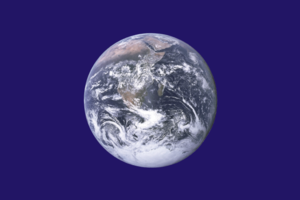Earth Day (nonfiction): Difference between revisions
No edit summary |
|||
| (One intermediate revision by the same user not shown) | |||
| Line 6: | Line 6: | ||
Numerous communities celebrate Earth Week, an entire week of activities focused on the environmental issues that the world faces. | Numerous communities celebrate Earth Week, an entire week of activities focused on the environmental issues that the world faces. | ||
== 1969 Santa Barbara oil spill == | |||
Main article: [[1969 Santa Barbara oil spill (nonfiction)|1969 Santa Barbara oil spill]]. | |||
On January 28, 1969, a well drilled by Union Oil Platform A off the coast of Santa Barbara, California, blew out. More than three million gallons of oil spewed, killing more than 10,000 seabirds, dolphins, seals, and sea lions. As a reaction to this disaster, activists were mobilized to create environmental regulation, environmental education, and Earth Day. Among the proponents of Earth Day were the people in the front lines of fighting this disaster, [[Selma Rubin (nonfiction)|Selma Rubin]], [[Marc McGinnes (nonfiction)|Marc McGinnes]], and [[Bud Bottoms (nonfiction)|Bud Bottoms]], founder of [[Get Oil Out (nonfiction)|Get Oil Out]]. [[Denis Hayes (nonfiction)|Denis Hayes]], organizer of Earth Day observance day, said that Senator [[Gaylord Nelson (nonfiction)|Gaylord Nelson]] from Wisconsin was inspired to create Earth Day upon seeing Santa Barbara Channel 800 square-mile oil slick from an airplane. | |||
== In the News == | == In the News == | ||
Latest revision as of 19:45, 22 April 2020
Earth Day is an annual event celebrated on April 22. Worldwide, various events are held to demonstrate support for environmental protection. First celebrated in 1970, Earth Day events in more than 193 countries are now coordinated globally by the Earth Day Network.
On Earth Day 2016, the landmark Paris Agreement was signed by the United States, China, and some 120 other countries. This signing satisfied a key requirement for the entry into force of the historic draft climate protection treaty adopted by consensus of the 195 nations present at the 2015 United Nations Climate Change Conference in Paris.
In 1969 at a UNESCO Conference in San Francisco, peace activist John McConnell proposed a day to honor the Earth and the concept of peace, to first be celebrated on March 21, 1970, the first day of spring in the northern hemisphere. This day of nature's equipoise was later sanctioned in a proclamation written by McConnell and signed by Secretary General U Thant at the United Nations. A month later a separate Earth Day was founded by United States Senator Gaylord Nelson as an environmental teach-in first held on April 22, 1970. Nelson was later awarded the Presidential Medal of Freedom award in recognition of his work. While this April 22 Earth Day was focused on the United States, an organization launched by Denis Hayes, who was the original national coordinator in 1970, took it international in 1990 and organized events in 141 nations.
Numerous communities celebrate Earth Week, an entire week of activities focused on the environmental issues that the world faces.
1969 Santa Barbara oil spill
Main article: 1969 Santa Barbara oil spill.
On January 28, 1969, a well drilled by Union Oil Platform A off the coast of Santa Barbara, California, blew out. More than three million gallons of oil spewed, killing more than 10,000 seabirds, dolphins, seals, and sea lions. As a reaction to this disaster, activists were mobilized to create environmental regulation, environmental education, and Earth Day. Among the proponents of Earth Day were the people in the front lines of fighting this disaster, Selma Rubin, Marc McGinnes, and Bud Bottoms, founder of Get Oil Out. Denis Hayes, organizer of Earth Day observance day, said that Senator Gaylord Nelson from Wisconsin was inspired to create Earth Day upon seeing Santa Barbara Channel 800 square-mile oil slick from an airplane.
In the News
Fiction cross-reference
Nonfiction cross-reference
External links:
- Earth Day @ Wikipedia
